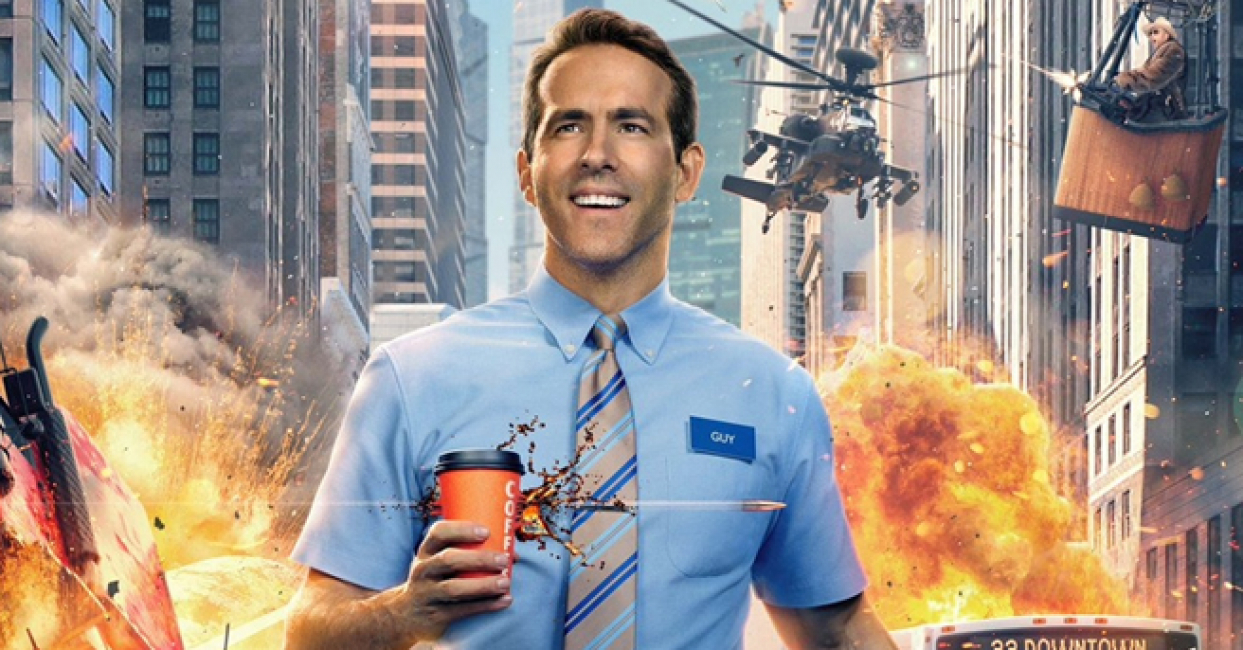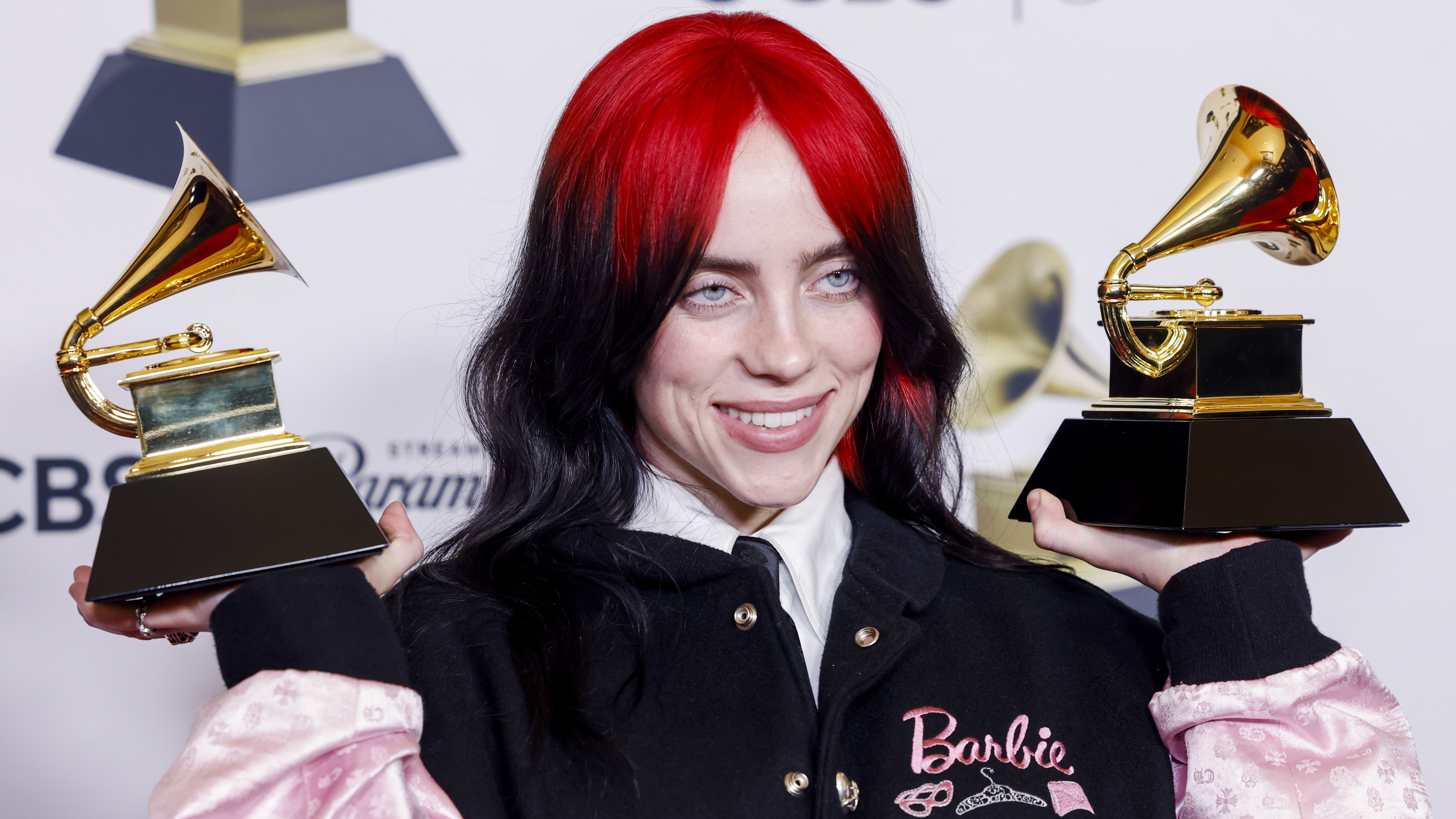How Ryan Reynolds went from "That Guy" to "The Guy"
A decade ago, Ryan Reynolds's star was fading. Now he's one of Hollywood's undisputed megastars.

When Free Guy, the 2021 movie starring Ryan Reynolds, was released, it felt curiously unique. A big-budget blockbuster based on an entirely new story. It's not tied to any pre-existing IPs or dependent on a long-running franchise. It's got an exclusive run in movie theaters and without a simultaneous Disney Plus release, something that not even Marvel's Black Widow warranted in the summer of 2021 (much to the chagrin of Scarlett Johansson's legal team).
All that and the movie received strong reviews and was a box office hit, landing in the top 10 for the entire year of 2021. For Ryan Reynolds, it was another sign of his increasingly indomitable status as one of Hollywood’s true modern-day A-Listers, a status the actor hopes will continue (though the stats to verify will be different) with his latest movie, The Adam Project, now available on Netflix.
In 2020, Reynolds was ranked as the second highest-grossing actor of the year by Forbes, with a mighty $71.5 million in the bank. Reynolds’s upcoming filmography is packed with original, non-franchise fare, the kind that only gets made with guaranteed bankable megastars in the lead (and even then, actors making such choices are few and far between).
His most famous character, of course, is Deadpool, whose future seems bright and delightfully chaotic thanks to the Disney-Fox merger. All in all, it’s not too shabby for an actor who, less than a decade ago, was being written off by the mainstream as a potential star whose moment had passed.
In the earliest days of his career in Hollywood, Ryan Reynolds always seemed like a guy who was primed for the big leagues. He was the kind of charming handsome white guy that fit in well with the fratty humor of the American Pie and Farrelly Brothers era of gross-out R-rated comedies. Reynolds’s brand of on-screen charm always contained a strain of smarminess throughout, which paid off with the film that was arguably his breakout role, National Lampoon's Van Wilder.
As that comedic trend began to wane, Reynolds climbed up the star ladder through a variety of genres, from horror (The Amityville Horror) to romantic comedy (Definitely, Maybe) to action (Blade: Trinity, Smokin' Aces.) He was easy enough to like and was never bad in any of his roles. It just seemed like he needed his next big step up. With the superhero genre blossoming into an unbeatable juggernaut in the early 2010s, Reynolds had two major opportunities.
First came X-Men Origins: Wolverine, wherein Reynolds played a pre-Deadpool Wade Wilson. Fans had endorsed the casting and Reynolds was excited to play the Merc with a Mouth. Sadly, that movie's slapdash origin for Wade left nobody enthused about this iteration of the character and he didn't appear in the future Wolverine sequels. Then there was 2011's Green Lantern, another leading man gig that Reynolds seemed perfect for, yet not even the goodwill for his version of Hal Jordan could mask the stink of that film's box office and critical failure.
The latest updates, reviews and unmissable series to watch and more!
Following Green Lantern, Reynolds had the vague air of the has-been around him. With other flops under his belt (R.I.P.D., Turbo, The Captive), many wrote off Reynolds's leading man prowess, even though he gave some of his best performances in underseen indie titles during this time, like The Voices and Mississippi Grind.
Fortunately, he had an ace up his sleeve with Deadpool. Though it was fight for Fox to greenlight the hard-R, fourth wall breaking, furiously profane movie, especially after Green Lantern's failure. Deadpool really came to the big screen through Reynolds and company's sheer force of will. He worked on many of the jokes and acted as what screenwriter Rhett Reese described as "the keeper of the Deadpool flame [...] if we ever do something that is off the Deadpool path, or if it doesn't feel like Deadpool, he catches it." With a reduced budget — an estimated $58 million, which is pennies for a genre used to costs of $200 million-plus — and lowered expectations from the studio, Reynolds was free to shape Deadpool in a way that few stars are able to do with IPs as valuable as a Marvel creation. The end result paid off in a major war.
Deadpool grossed $782.6 million, becoming the ninth highest-grossing film of 2016 and breaking numerous records for an R-rated film. Critics loved it and Reynolds in particular was singled out for his performance. Finally, he had a character perfectly designed to showcase his skills. Wade Wilson is essentially a screwball comedy hero with more swearing and head explosions — somehow petulant yet deeply charismatic. He spews one liners and self-referential gags at an exponential speed and never minds being the butt of his or anyone else’s joke. Crucially, he’s faithful to the comic books, which isn’t necessarily the default mode for this subgenre of adaptation in the almighty expanded universe age. At a time when superhero cinema became wholly serious, Deadpool punctured the balloon in a loving way. Soon, Reynolds was back on top.
Hollywood may be the denizen of white guys with abs named Chris, but Reynolds' most accurate A-Lister comparison would probably be Dwayne Johnson, another figure with action movie chops who made his way to superstardom through his comedic prowess and appropriate self-mockery. There's nothing po-faced about either man. They need that rimshot one-liner to deflate the solemnity of the moment. That's what makes them work with this caliber of blockbuster cinema.
It's also benefitted them off-screen with producer gigs and business ventures that have elevated them to untouchable status. It's not enough to just be a leading man anymore, and Reynolds knows that. His gin company and ownership of Mint Mobile have added lots of extra zeroes to the end of his paycheque. He recently took over the Welsh football club Wrexham AFC with It's Always Sunny in Philadelphia star Rob McElhenney and will star in a docuseries covering this new venture (how very IRL Ted Lasso).
Reynolds is the kind of 21st century power player that would have seemed laughable only a decade ago. Now, it’s the endgame for every wannabe actor in the business. Ryan Reynolds wasn’t the first to do it but his stratospheric rise from "That Guy" to the king of the castle is the new aspiration of this generation of Hollywood.
Kayleigh is a pop culture writer and critic based in Dundee, Scotland. Her work can be found on Pajiba, IGN, Uproxx, RogerEbert.com, SlashFilm, and WhatToWatch, among other places. She's also the creator of the newsletter The Gossip Reading Club.


